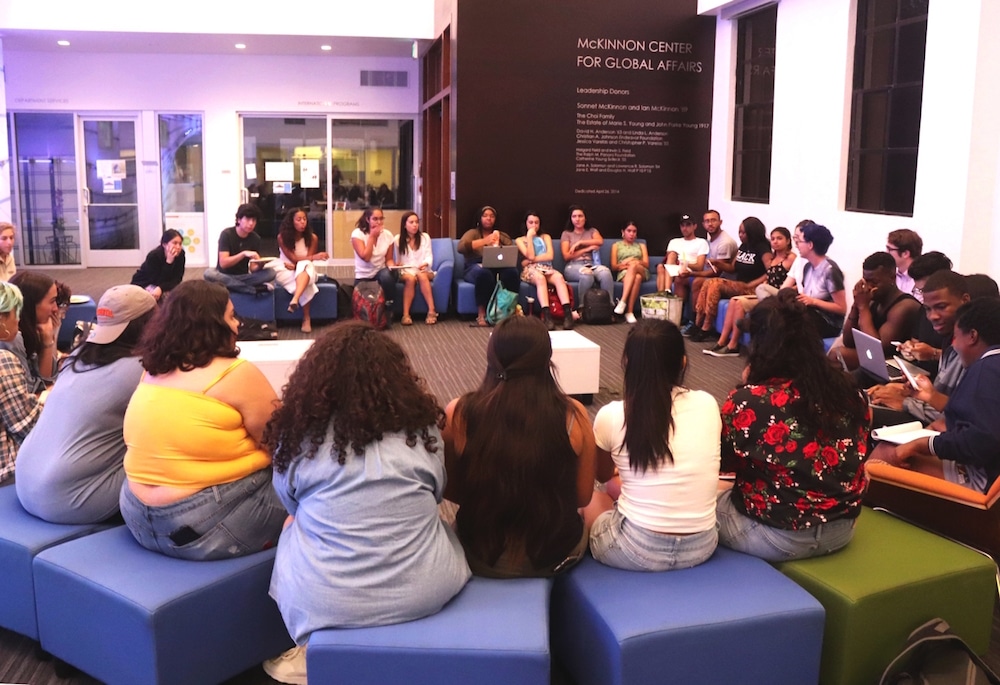In anticipation of the minimum wage increase to $15 an hour in the city of Los Angeles by 2020, the members of the Associated Students of Occidental College (ASOC) are trying to adapt their budget to sustain student services while minimizing the student fee, according to ASOC Student Body President Zachary Solomon (junior). One of the largest student employers on campus, ASOC is responsible for funding all student services including Bike Share, KOXY, Programming Board and The Occidental Weekly, among others.
The minimum wage impacts ASOC’s budget because wages are a significant part of student service expenses, according to Solomon.

“Close to the majority of the ASOC budget is spent on student wages, and already we have seen some student services have cut back on hours they can offer students, have had to cut back on positions entirely and basically if we don’t do something by 2020 when the minimum wage is $15, we’re going to be in a big budget crunch,” Solomon said.
ASOC Finance Manager Linda Schraeder said that she is striving to balance the budget while maintaining student services, but there are limited options.
“Obviously, when wages go up, one of two things needs to happen. Either budgets need to go up or cuts need to be made to accommodate increased wages,” Schraeder said. “One way for increased budgets is by increased fees, so that’s an option.”
The student fee currently stands at $144 per semester, with an additional $10 each going to the ASOC Renewable Energy and Sustainability Fund (RESF) and the Diversity and Equity Board (DEB). According to Solomon, Occidental’s student fee is lower than student fees at peer institutions like Pomona College, which has a fee of $177.50 per semester.
ASOC Vice President of Finance Jarron Williams (senior) said that in order for the fee to be increased, the student body must vote on whether or not they deem the change necessary. Student involvement in deciding budget increases is critical, according to Williams.
“Our goal is to be transparent,” Williams said. “[The budget] impacts all of us, you know, not just me as a senator but me as a student, you as a student, it impacts everyone.”
ASOC most recently increased the student fee in 2016 by $10 after a student vote to accommodate DEB. This increase had no effect on the funds of other student services. According to Schraeder’s records from 2013 to 2017, ASOC has not raised the student fee for student services in this time frame. If the student body decides to increase the student fee, ASOC is planning to implement the change in a manner convenient to students, according to Solomon.
“We’re not going to raise it dramatically, we are looking at potentially rolling it out in a three-year smaller expansion each time so it is less of an impact on students as opposed to just a direct fee increase,” Solomon said.
Williams said that student services’ budgets are already stretched.
“Every student service within the past three years since I’ve been on Senate has come back to Senate for money at least once, and that’s before the minimum wage increase even happened,” Williams said. “The only way that we can be sustainable and meet the needs right now, the present and the future at Oxy, is if we do a student body fee increase.”
ASOC reviews the budget every year, and its members do their best to limit fees for students, according to Solomon.
“What I like about us having to do it every year is that it keeps us accountable and makes us think about why we are raising student fees,” Solomon said. “I don’t want to raise the student fee unless we absolutely have to, and in this case, I think we do, but it’s part of our duty to explore what other options we have first.”
Solomon said that it is unclear what will happen to student services if the ASOC budget is no longer able to support them.
“If we no longer have money in the savings account, or money in our CDs [certificate of deposits] and we are completely out of money, The Weekly doesn’t operate, Bike Share will not operate, SAC [the Student Activities Center] desk will not operate, all of these services will shut down,” Solomon said.
While the minimum wage will continue to rise until it reaches $15 in 2020, student services may be forced to stretch their funding. The Food, Energy and Sustainability Team (FEAST) — which ASOC made a student service this year — will have to deal with the repercussions of this wage increase, according to Diego Zapata (junior), director of FEAST.
“Because most budgetary expenses for student services are wages for paid student employment, this has put a huge constraint on how FEAST can operate as a new student service with an already considerably modest budget,” Zapata said.
Alana Adelman (sophomore) said she was conflicted over the potential change to student fees.
“That’s a difficult situation just given [that] the cost of attendance is already really high, so I can understand why people would be skeptical to pay for these fees,” Adelman said.
According to Adelman, student services are an integral part of campus engagement.
“The reason why I personally am involved on campus is because of all these clubs so I think that in the long run, it’s beneficial to have all of these, and it would be a shame to have all these defunded just because we can’t get the money to keep them going,” Adelman said.
![]()































